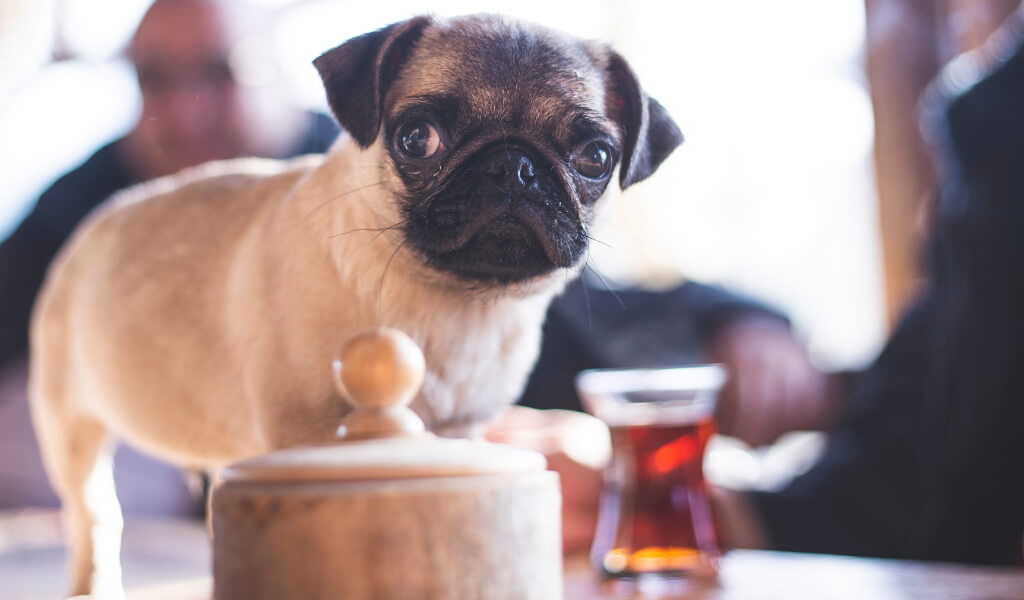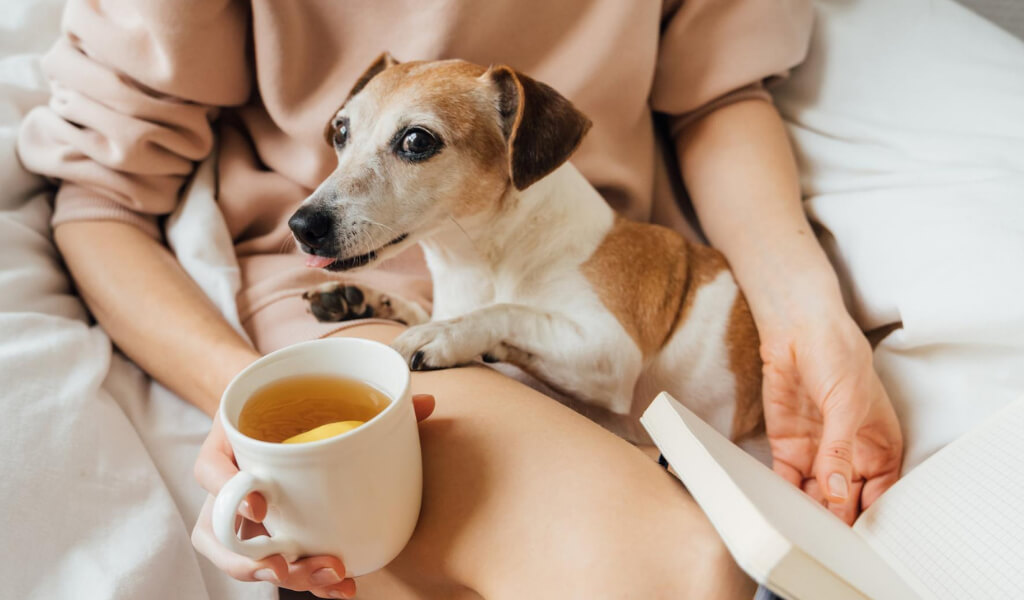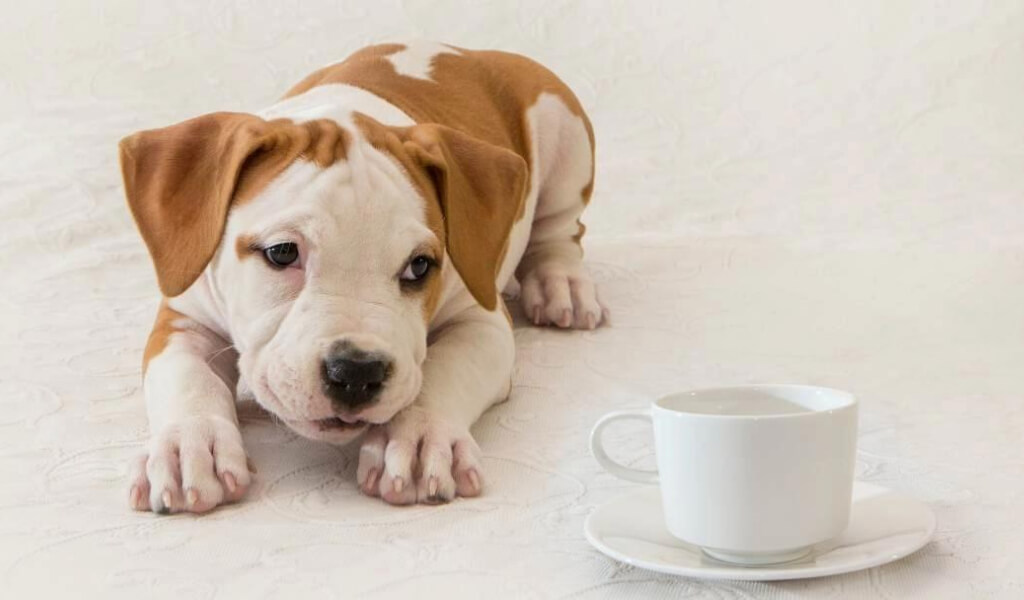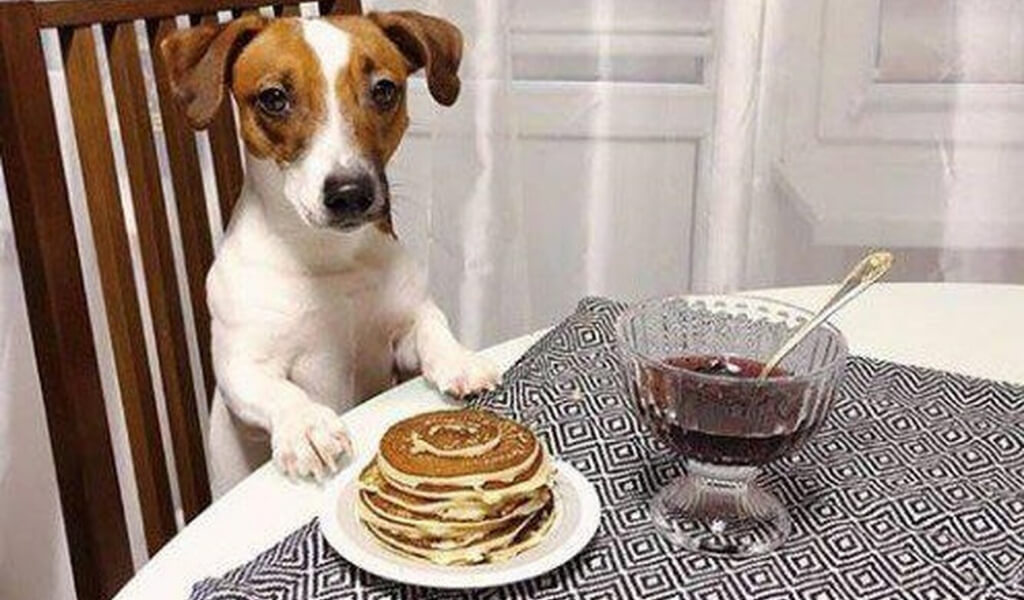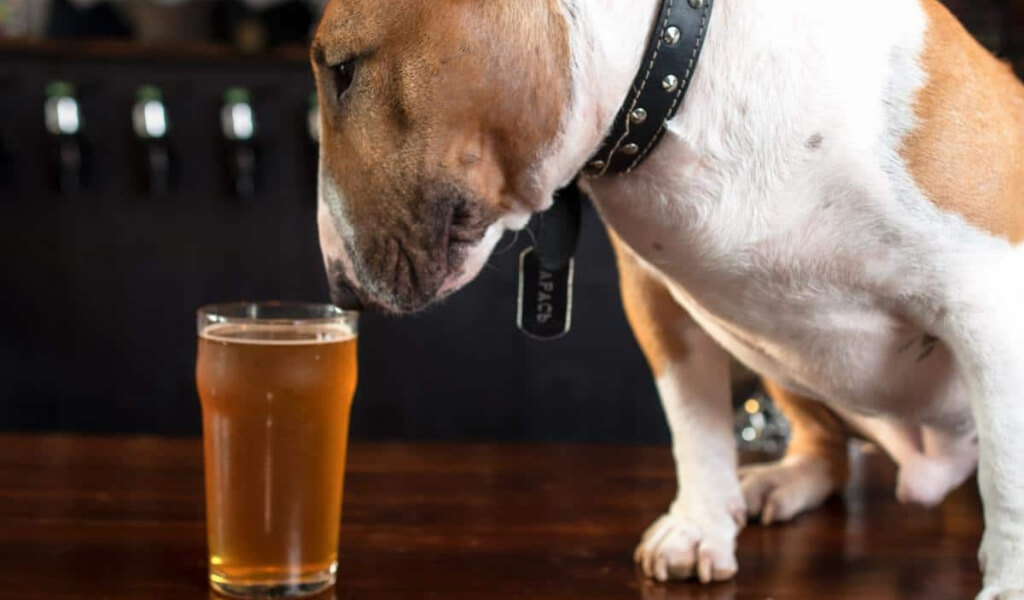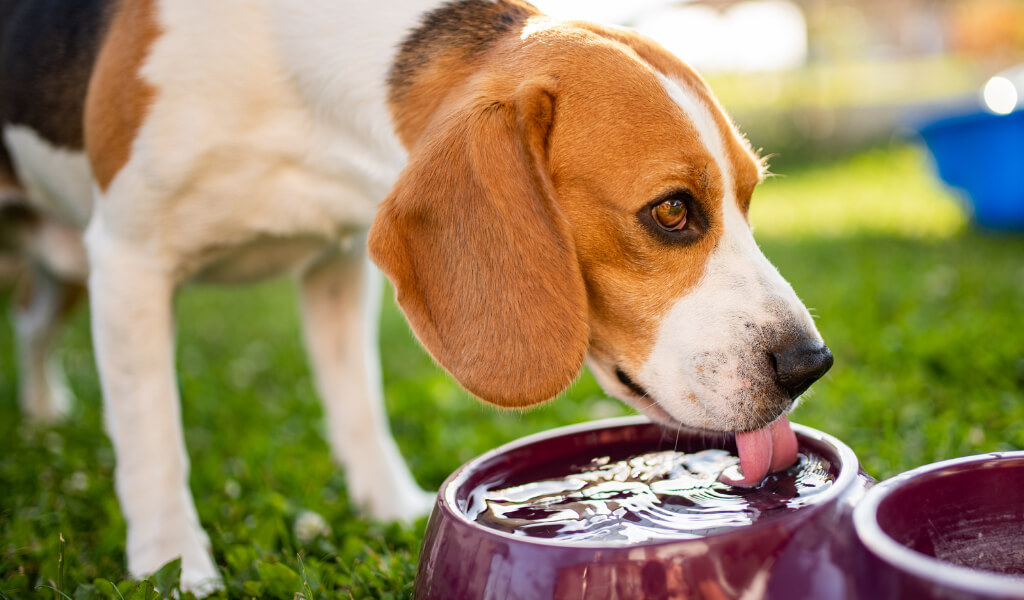Hi, fellow dog and tea lovers!
Ever wondered, “Can dogs drink tea?” As a tea enthusiast and dog owner, I’ve pondered this too.
In this friendly guide, we’ll explore this question together, discuss the health implications of tea for dogs, and consider safe, dog-friendly alternatives.
Can Dogs Drink Tea?
Dogs can’t drink tea, especially caffeinated teas like green tea (which comes from the Camellia Sinensis Plant). Caffeinated teas, like green tea, can cause caffeine poisoning in dogs, especially smaller breeds like Dachshunds.
Even decaffeinated options, such as chamomile, Earl Grey or herbal tea for dogs, could be better, as they can have side effects and should not replace water.
Read More:
- Can I drink Tea after Tooth Extraction? Comprehensive Explanation
- Chicken Salad Tea Sandwiches Recipes: Ultimate Guide For A Yummy Dish
- Can You Drink Tea While Fasting? 10 Interesting facts are revealed
- Can Cats Drink Tea? For your pet’s health, don’t ignore it
- How long do Tea Lights Burn? Detailed Explanation
Is Tea Bad for Dogs? 3 Health Risks of Tea for Dogs
So, you’ve noticed your dog’s curious gaze on your morning brew and wondered, “is tea toxic to dogs?” I’ve pondered the same as a fellow dog lover and tea enthusiast. Unfortunately, the answer leans toward the affirmative. Let’s explore three key risks for dogs drinking tea – caffeine, dairy, and sugar.
How caffeine affect your dogs
For humans, caffeine may be an essential morning jolt, but it can pose significant dangers for our four-legged friends. When it comes to caffeine and dogs, whether it’s from green tea, decaf tea, or even the unexpected case when my dog ate a tea bag, the risk of caffeine toxicity looms.
Common Signs of Caffeine Toxicity in Dogs
As a responsible pet owner, it’s important to be aware of the following signs of caffeine toxicity in dogs:
- Hyperactivity
- Elevated body temperature
- Restlessness
- Vomiting and diarrhea
- Tremors
- Elevated heart rate
- Abnormal heart rhythms
If you see these symptoms, especially after your dog drinks tea, contacting your vet is critical.
How to treat caffeine poisoning in dogs
The course of treatment for caffeine poisoning is multi-faceted and involves:
- Inducing vomiting to clear the stomach.
- Administering multiple doses of activated charcoal for decontamination.
- Providing aggressive IV fluids to aid in excretion.
- Using sedatives to calm the pet.
- Applying specific heart medications to control heart rate and blood pressure.
- Anti-convulsants for controlling seizures.
- Antacids for stomach discomfort and diarrhea.
About Dairy Ingredients
Now let’s consider dairy. A splash of milk in our tea may seem harmless, but dairy can be difficult to digest for many tea dogs, leading to an upset stomach or even lactose intolerance.
How Sugar Works?
Lastly, the sugar often added to tea can spell trouble for dogs. High sugar intake can lead to an unhealthy rise in blood sugar levels and potential obesity. Moreover, certain artificial sweeteners, such as xylitol, are outright toxic to dogs.
Are there safer alternatives to tea?
Herbal teas, specifically decaffeinated ones, can often serve as safer substitutes.
While regular green tea is not recommended, decaffeinated green tea, in moderation, could be a safe choice. Chamomile tea, too, has been known to soothe upset stomachs in dogs, just like it does in humans.
Peppermint tea in moderation, without caffeine, may aid digestion. Decaf mint tea can offer a pleasant drink for your pet. Consult your vet before altering their diet. Fresh water remains the best way to keep your pet hydrated.
Are There Safer Alternatives to Tea?
Herbal teas, specifically decaffeinated ones, can often serve as safer substitutes.
While regular green tea is not recommended, decaffeinated green tea, in moderation, could be a safe choice. Chamomile tea, too, has been known to soothe upset stomachs in dogs, just like it does in humans.
Peppermint tea might help with digestion, but again, the key is moderation and ensuring it’s caffeine-free. Similarly, a cup of decaf mint tea could give your furry friend a fun and aromatic drinking experience.
However, as always, I recommend consulting your vet before making any dietary changes for your pet. Despite these safer alternatives, remember that nothing beats fresh water when hydrating your pet.
What can dogs drink besides water?
- Vegetable juice or extracts. Vegetables like carrots, beetroot, kale, celery and spinach are healthy dog snacks packed with vitamins, minerals and other nutrients.
- Coconut water.
- Nut milk.
- Beef or chicken broth.
- Fruit juices.
- Kefir.
How to make your own homemade caffeine-free tea for dogs
Let’s dive right into creating a personalized, caffeine-free herbal tea for your dog.
Ingredients:
- 1 teaspoon of dried or 3 teaspoons of fresh herbs (for example, peppermint is a common and safe choice)
- ½ teaspoon of honey
- Cotton or muslin teabags
- 250ml of water
Step-by-step guides:
- Choose your herbs: The first step is to pick the herbs you’d like to use. Peppermint is a popular choice but explores other dog-friendly herbs.
- Creating a herbal mixture: Try combining two or more herbs. If you do, maintain a 2:1 ratio between the primary herb (like peppermint) and any complementary herbs.
- Fill the teabag: After deciding on the herbs, place a teaspoon of the dried herb mixture, or three teaspoons if you’re using fresh herbs, into a small muslin or cotton teabag.
- Steep the tea: Put your teabag into around 250ml of boiling water. If the weather is warm, make an iced version by adding the teabag to cold water with ice.
- Sweeten the tea: Add a touch of sweetness with half a teaspoon of honey.
- Cool it down: If you’ve made hot tea, let it cool or add some cold water or ice cubes before serving it to your dog. This will ensure your pup won’t burn itself.
- Remove the teabag: Take out the teabag once your tea has cooled.
Thanks from Spiriteadrinks.com
Conclusion
So, can a dog drink tea? While certain teas, like caffeine-rich green tea, may not be suitable, other options, like herbal and decaf teas, can be okay in moderation.
Yet, it’s essential to remember that no matter how “good” a tea may be, nothing replaces fresh water to keep your pup hydrated and healthy.
FAQs
Is tea good for dogs with peppermint?
Yes, dogs can have peppermint tea in moderation, but ensure it’s decaffeinated. It may aid digestion and provide a refreshing treat, but it should not replace their regular water intake.
What benefits of peppermint tea for dogs?
Peppermint tea may help soothe your dog’s stomach and freshen their breath. However, the benefits should be balanced with their daily water needs, and they always use a decaffeinated version.
Can dogs drink herbal tea?
Yes, dogs can drink certain herbal teas like chamomile or peppermint, as long as they’re decaffeinated and given in moderation. It’s best to consult your vet before introducing new teas to their diet.
My dog loves tea, but can I give my dog ginger tea?
Yes, ginger tea can be given to dogs in moderation. It’s known to help with nausea and motion sickness, but ensure it’s decaffeinated and consult your vet first.
Can Tea Cause Seizures in Dogs?
Yes, tea containing caffeine, like green or black tea, can cause seizures in dogs due to caffeine toxicity. Always opt for caffeine-free options and limit their intake.
I’m Shanna, creator of Spiritea Drinks. I’m all about teaching people to grow their own food, tea, cook what they harvest, and eat with the seasons.


